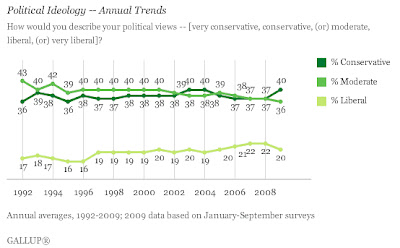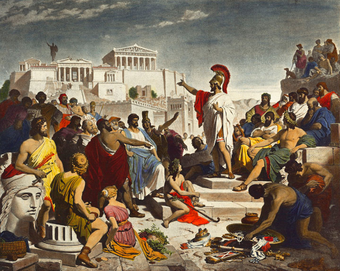A secondary source that has provided much insight is Theresa Urbainczyk's "Slave Revolts in Antiquity." Urbainczyk, a professor at the University College in Ireland, focuses on addressing the social and political context in which the revolts took place. The book is unique because the academic following of ancient slave revolts has been neglected. In her book, Urbainczyk hypothesizes that there is a clear explanation for the lack of scholarship on the subject. She argues that although slaves did revolt in antiquity, in some instances by the thousands, and sometimes in revolts lasting for years, but the key fact that they all eventually ended and slavery persisted. She also claims that the slaves did not really have a chance of succeeding.
Crucial though to Urbainczyks theory is the significance of studying slave revolts in giving an understanding of the societies they took place in. Additionally, studying earlier ancient slaves revolts give insight into later revolts.
Urbainczyk points out many similarities between more recent revolts and revolts in antiquity, but in my opinion needs to expand her theory to include other aggravating factors when examining the cause of slave revolts: a prime example of this highlights a primary source I have been using--Thucydides' "History of the Peloponnesian War". In Book one Thucydides' credits the earthquake of 464 BCE with the uprising of the Helots to Mt. Ithome.
http://books.google.com/books?id=SY0HIF40LxsC&pg=PA187&lpg=PA187&dq=Thucydides+helot+uprising&source=bl&ots=IeEbJS_wk5&sig=huIiKpPp3URa9SFsary-Gq8Z7o4&hl=en&ei=DLlmTeuQHIT7lwfp3_n-AQ&sa=X&oi=book_result&ct=result&resnum=10&ved=0CFAQ6AEwCQ#v=onepage&q=earthquake&f=false
In addressing the modern portrayal of ancient slave revolts and leader's, Page DuBois' "SLAVERY: Antiquity and its Legacy" has really helped put the public view into perspective. She claims that film makers in such films as 'Spartacus' (1963) and 'Gladiator' (2003) reveal the film makers' "hatred of slavery, a desire for freedom, and an identification with the heroic slaves that is universalized. The situation in these ancient settings is allegorized to encompass what the American directors assume is a natural hunger for freedom and to escape bondage...the myth of escape from oppression, the huddled masses yearning informs profoundly these accounts of antiquity on film." (duBois 163). Dubois makes a sound point: The portrayal of antiquities' slave leaders, who are household names even in 2011, such as Spartacus (both in the 1963 film and the 2010 Starz series, and Maximus (even though fictional), embody American ideals of freedom from oppression. Please view the following clips:
Gladiator. The quote from this clip, "Win the crowd, win your freedom," indicates this is Maxivus' (and presumably all slaves') underlying desire. I question the validity of this on the grounds that many gladiators loved being gladiators for the fame and honor that went with it. It was like being a professional athlete:
http://www.twitvid.com/WRW5M
My third secondary source, American Negro Slave Revolts by Herbert Aptheker, addresses revolts of slaves such as Nat Turner and how American slavery faced constraints limiting the successes and opportunities of slavery: fear of rebellion, the machinery of control, and the exaggeration, censorship and distortion of their portrayal. I found many parallels between both the constraints on revolts, and the mitigating opportunities for them in Aptheker's book and that of Urbainzcyk. It seems to me that each time a major uprising took place, there were circumstances which aided in the success of the revolt. Urbainszcyk capps this on the social and political issues, but I would expand this to include other issues, such as the earthquake of 464, of the severe maltreatment of American slaves such as Nat Turner. Aptheker gives strong credence to the latter.
In Suetonius' "Life of Augustus", he cites Augustus' stopping Spartacus' followers as a major accomplishment. This is significant because Suetonius generally focuses on the character of his bibliographies, not a tedious list of accomplishments and historical background. For Suetonius to include this detail, it represents the Roman public's fear of Spartacus, as it must have been a "great" task for August to suppress him:
"After his praetorship, he became governor of Macedonia, having crushed a group of outlaw slaves who, having fought under Spartacus and Catiline, were now holding possession of the district...he governored Macedonia courageously and justly winning a big battle..." (Suetonius 3.1)
As I presented in class and have previously cited, Theresa Urbainczky argues in "Slave Revolts in Antiquity" that many successful slave revolt took place concurrent with other social and political unrest. In a modern context, the success of slaves' escapes is also increased by social factors.
Four years ago a 20-year-old university student signed up with a friend to study English abroad in a program that involved waitressing in Virginia Beach, but the girls would never reach Virginia. And they wouldn't be waitresses. Instead they ended up being forced to work as sex slaves at the Cheetah Club in Detroit. They eventually escaped from the traffickers holding them against their will, and were eventually represented by a University of Michigan Law School Clinic Professor.
I argue that the girls were successful in their escape, similar to the heightened success of ancients revolts concurrent with social upheavals, because of a) An increased public awareness of human trafficking in the U.S., and b) Publicity of the incident. Here is a link of a transcript from an MSNBC interview with one of the victims:
http://www.msnbc.msn.com/id/22056066/ns/msnbc_tv-documentaries/
Finally, I would like to show the dichotomy between then present historical portrayals of leaders of slave revolts in antiquity and 19th century America. The two are very different in their portrayal of the subject:
Spartacus: Proud and Noble.
And
Nat Turner: Portrayed as weak and ragged.









